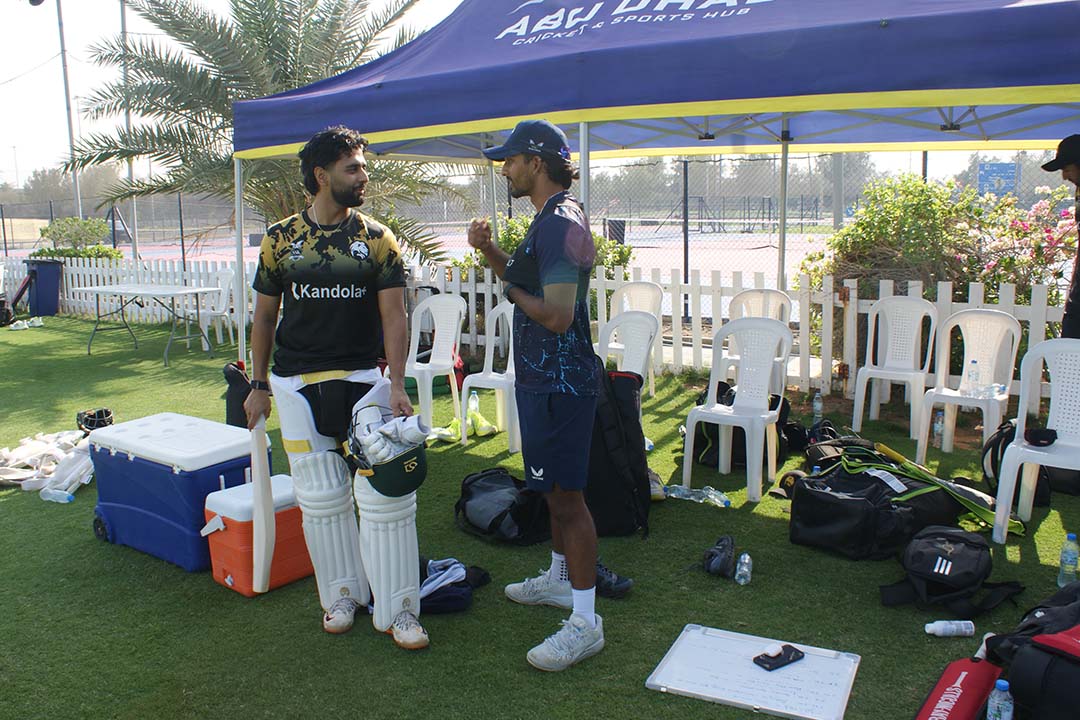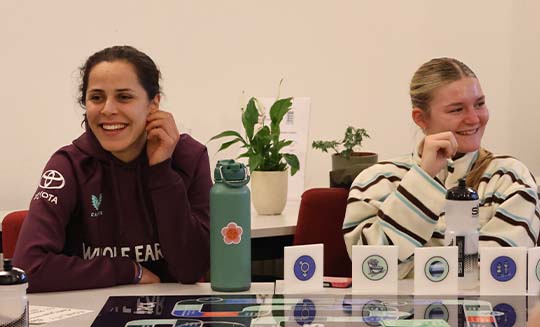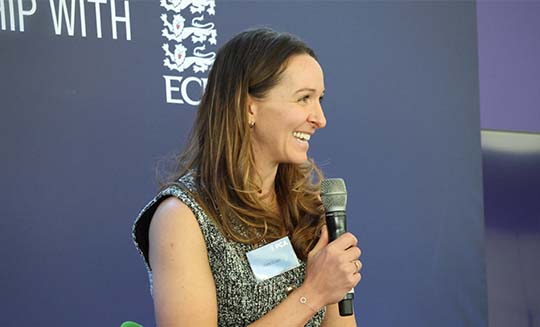PCA feature the success story of the academy during South Asian Heritage Month.
To see more articles, click here
To celebrate the ongoing South Asian Heritage Month, the PCA teamed up with the South Asian Cricket Academy (SACA) and its graduates to highlight the academy’s success stories in getting players into the professional game.
The theme for the 2025 South Asian Heritage Month is ‘Root to Routes’ to mark the unique journey of each individual in shaping their roots and the path they have travelled to get to where they are in their lives. The occasion is observed across the country from July 18 to August 17 to commemorate the cultures of South Asian communities.
Both Hishaam Khan and Amrit Basra are recent graduates from a successful SACA conveyor belt which has already seen the likes of Jafer Chohan and Zaman Akhter amongst others make it big in the professional game in England and Wales.
Khan made his professional debut for Worcestershire during last season’s Metro Bank One Day Cup, taking four wickets along the way. Amrit Basra, on the other hand, recently became the 14th graduate of SACA and made his professional debut for Derbyshire in the One Day Cup.
Basra, 23, lauds the support he received from SACA, not only on the pitch but off the pitch as well. The new Derbyshire signing said, “SACA’s contribution has been very important, and they have played a significant role in my journey into developing as a professional cricketer.
“They have helped me in various ways like giving me opportunities and a platform to perform on whilst also providing me with a good structure and training plan which has benefitted me very much,” he added.
SACA was established in 2022 by Dr. Tom Brown after completing his PhD in Talent ID and Development in Cricket from Birmingham City University. The academy not only provides players with a stage to help them secure a professional contract with the counties but also comes to their assistance when they are without a deal, like in the case with Khan.
Speaking about his career’s situation, Khan said, “Without SACA, I don’t think I would have been in the position that I was. A lot of credit goes to Tom Brown, the director, and the coaching staff when I signed a contract last year. Even this year coming out of the professional game, to still be able to get the opportunity to play against counties and provided a platform to perform and succeed has been important for me.”
SACA has had resounding success in the past three years since its inception. According to Brown, when the academy was first launched back in 2022, there were 18 players of British South Asian heritage playing for Professional Counties. Today that number has risen to about 50. The rising number of players coming from South Asian heritage shows that game is taking note and giving them the opportunity to flourish on the big stage.
No other SACA graduate has grabbed more headlines in recent times than Yorkshire’s Jafer Chohan. The spin bowler was selected as part of England’s white-ball squad which travelled to the West Indies.
Chohan’s success has put SACA on the cricket map with Professional Counties taking more interest in their players. Speaking about the impact the 23-year-old has had, Brown said, “Jafer’s success validates everything that we’re doing. These players are effectively going from club cricket to the very pinnacle of our game within 24 months.
“What it did was that more and more counties started to come to us and go, ‘who’s the next Jafer that you have got?’ There was also an increase in fixtures against these counties and more interest in our players,” he added.
"SACA have developed a group of players where they are very happy for other’s successes. When someone gets signed it feels like one of your own has done well."
HISHAAM KHAN
In recent months, a host of graduates have made their debuts for counties. These include Mohammed Rizvi for Kent, Aman Rao for Gloucestershire and Vansh Jani for Warwickshire to name a few.
SACA is built on the culture of celebrating other’s success and having a sense of belonging amongst everyone involved like a small family.
Khan backed those claims by saying, “SACA have developed a group of players where they are very happy for other’s successes. When someone gets signed it feels like one of your own has done well. There is competitiveness amongst everyone but never hatred and credit to Tom and the coaching staff in developing that within the players.”
Basra echoes Khan’s sentiments about feeling a sense of pride when fellow graduates go well for their Professional Counties. Back in July, yet another SACA graduate in Warwickshire’s Zen Malik scored his second First-Class hundred at Edgbaston against Worcestershire to take his side to a win. Talking about his colleague, the Derbyshire signee said, “Zen is a good friend of mine. I was actually at a wedding and watching him bat on my phone. I was so very happy when he got his hundred. People at the wedding might have been wondering why there were some little cheers from me!”
“Everyone knows that we are all in very similar positions. There is almost like a brotherhood where we are all happy for each other. Even myself, when my contract was announced, the messages flooded in from everyone in the group chat which was a really nice feeling,” Basra added.
With such a strong presence in English cricket and an even stronger community between everyone involved, the future of SACA looks immensely bright. Brown, however, thinks otherwise. The academy Director believes that the betterment of English cricket can only happen if designated cricket academies are replaced by more inclusive structures throughout the pathways.
“If you have a pathway that is South Asian only, the game will ultimately rely a lot on it. Ultimately, the point of SACA was to try and buy the game time to learn how to look after these players in the first place. If we have a South Asian only programme for too long, it does not incentivise the game to do things by itself whereas that was our aim, to make the game better rather than create an academy that does some of the work for it,” said Brown.
Graduating from SACA and playing professional cricket allows both Khan and Basra to represent their South Asian heritage at a nationwide level.
The former Worcestershire player takes proud in his background and said, “It makes me very proud. I always try and represent my South Asian heritage whether it’s playing for SACA or for other clubs who are more mixed cultured. I just try to represent my culture, heritage and people around me in the best possible manner.”
Basra, on the other hand, wants others to respect their heritage because it eventually helps a person in shaping their identity. He said, “It is a very nice and proud feeling to have. My culture, traditions and my family have all made me the person I am today. All of this makes me proud to be a cricketer and hopefully others can feel the same way.”
Find out more about the South Asian Cricket Academy and how to donate to their cause here.

















